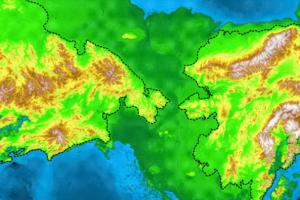The Working-Class Origins and Legacy of International Women’s Day
UE News
 The NED and its institutes continue to actively fund projects in Venezuela today. In other words, NED and its institutes are not active in Venezuela to help promote democracy, as they claim, but in fact, to act against popular democracy in an effort to restore the rule of the elite, top-down democracy.
The NED and its institutes continue to actively fund projects in Venezuela today. In other words, NED and its institutes are not active in Venezuela to help promote democracy, as they claim, but in fact, to act against popular democracy in an effort to restore the rule of the elite, top-down democracy.
 Genetic evidence proves that Asian populations made the trek across Beringia roughly 25,000 year ago. But a recent genetic analysis of mitochondrial DNA shows that these populations didn't actually make it to North America until about 15,000 years ago. Quite obviously, it shouldn't take a group of paleolithic-era humans 10,000 years to trek across a 51 mile stretch. So what happened?
Genetic evidence proves that Asian populations made the trek across Beringia roughly 25,000 year ago. But a recent genetic analysis of mitochondrial DNA shows that these populations didn't actually make it to North America until about 15,000 years ago. Quite obviously, it shouldn't take a group of paleolithic-era humans 10,000 years to trek across a 51 mile stretch. So what happened?
Spread the word